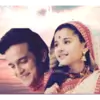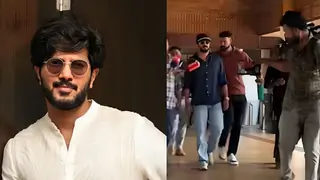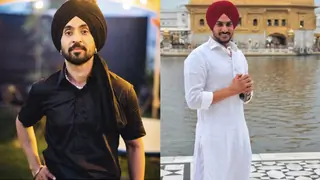Originally posted by: thornewood9
*Aisha looks around Dv Forum*
*Waits*
*Peers around again*
Theek hain mein he shooroo kartee hoon.
*rubs hands determinedly*
*Drinks some Pepsi*
*Starts typing*
"Rajat Tokas, suits which role more? Prithvi Raj Chauhan or Veer?"
To answer such a profound question we must first of all compare the dramas and both the characters with each other.
PrithviRaj Chauhan is a character which actually has a basis in historical fact. He was a king of the Hindu Rajput Chauhan (Chauhamana) dynasty, who ruled a kingdom in northern India during the latter half of the 12th century.
Prithvi Raj Chauhan was the second last Hindu king to sit upon the throne of Delhi. He succeeded to the throne in 1179 CE at the age of 11, and ruled from the twin capitals of Ajmer and Delhi. He controlled much of Rajasthan and Haryana. His elopement with Sanyogita, the daughter of Jai Chandra, the King of Kannauj, is a popular romantic tale in India, and is one of the subjects of the Prithviraj Raso, an epic poem composed by Prithviraj's court poet and friend, Chand Bardai.
The drama Prithvi Rah Chauhan focuses on the many victories of Prithvi Raj Chauhan with a great emphasis on the relationship he shared with Sanyogita.
Throughout the drama there is also a great importance given to the relationship he shared with his four friends: Pundir, Chand Bardai, Arjun and Sanjam. In this way the main themes of this drama are Friendship, Love and Honour.
DharamVeer is the tale of two brothers which is set in the Kingdom of Aryanagar. This people of this kingdom are split into two sects: the Shramik and the Aryavarths. The Aryavarths are seen as the more important and also have created the Laws and Regulations with which they rule Aryanagar. The Shramik are the slaves of the Aryavarths and work for them. They gain no recognition from the Aryavarths of their hard work and there are many of them who resent this enforced division seeing it as unjust and prejudiced.
Rajat Tokas plays the role of Veer who is one of the main characters in this drama. He was born to the Shramik Soma who was the leader in the resistance against the Aryavarths but by a trick of Fate was raised by Nivriti, an Aryavarth and the widowed sister of the King of Aryanagar.
Nivriti instilled the values of Duty, Honour and Love in Veer as she raised him, one of these duties being to Honour and Protect Dharam, the son of the King of Aryanagar. Both are raised together who share a deep bond of True Love and Friendship between them. This bond is so strong that Dharam and Veer are incomplete without each other and cannot see themselves without each other in their lives.
Similarily the themes of Friendship, Love and Honour are prominent throughout the drama and share a resounding resemblance to the drama of Prithvi Raj Chauhan.
So here we can see that the two dramas, DharamVeer and Prithvi Raj Chauhan, are similar in both the themes that are promoted and in the lessons that are brought across to the audience.
Prithvi Raj Chauhan is the future King of Ajmeer and so as he was raised he was instilled with a great sense of Duty and Responsibility. It is a certainty that he will one day be crowned King after his father and so is very mature for his age and in his thinking. He does have his share of fun and amusements especially when he is in company with his friends but knows the limit of such trivial amusements. His character is therefore very serious in nature, mature and responsible. His Duty lies with his Kingdom and People and with his family and friends.
'Mein tumhey kuch nahin hoonay doon gah.'
This quote was spoken in deference to his father, Maharaj Someshwar, when his father was ambushed and an assassination attempt against his life was taken. Prithvi Raj Chauhan holds his father in great esteem and in the days following his father's death he was overcome with a great sense of guilt and anguish as he felt he had betrayed his father by not being able to save him from death.
'Ek betah apnay pitaji key rakshah nahin kar paya toh voh Ajmeer kay logoh key rakshah kaisey kar paey gah? Mein pitaji key jagah nahin ley saktah.'
this sense of failed Duty leaves Prithvi Raj Chauhan in great emotional turmoil and we see from this incident how strongly he views Responsibility and Duty. So strongly that he sees himself as having failed even when circumstances were out of his control and nothing he could have done would have changed it anyway.
He has a strong sense of fulfilling Duty to his utmost best and many times comes across as a perfectionist and strict disciplinarian.
'Prithvi Raj Chauhan nay khabhie harna nahin seekah.'
This facet of his character is brought across extremely well and stressed with great importance from this one quote. This quote has become quite famous in the drama as Prithvi Raj Chauhan's catchphrase and is seen as showing the epitome of Prithvi Raj Chauhan's character. It shows how zealous he is in wanting to achieve success and stresses the importance he puts on Victory and fulfilling his each and every undertaking.
Veer in comparison is the cousin of the future King of Aryanagar, Dharam. Unlike Prithvi Raj Chauhan, Veer is considerably less serious. He is seen as mischievous and fun-loving. This facet of his character is seen especially prominently in the beginning of the drama.
'Iss baat ka koi inkaar nahin kar saktah kay tum ek better bhai ho. Paar ek better khiladi toh Veer he hain.'
This catchphrase shows the essence of Veer's character. He is extremely competitive and like Prithvi Raj Chauhan has a sense of wanting to be the Best. He refuses to fail in anything whether it be a game or in upholding his Duty. But this passion for being successful and victorious is, at the beginning of the drama, more for his own notion of achievement and not for any other person. Throughout the drama we see a gradual change in Veer's character in the fact that although he still wishes to be victorious in his endeavours, these endeavours are for other people and not his own satisfaction.
His sense of Duty and Responsibility only stretches to encompass Dharam and Veer's family. Here is the main difference that is seen between Veer and Prithvi Raj Chauhan.
Veer was raised with the same sense of Duty and Responsibility as Prithvi Raj Chauhan but whereas Prithvi Raj Chauhan focuses this Duty and Responsibility on his Kingdom and People, Veer focuses his Duty and Responsibility on his Best Friend and Brother Dharam. Occasionally this Duty and Responsibility is also concentrated onto protecting the Aryavarths and Aryanagar however if it came down to choosing between the two Veer would choose upholding his Duty to Dharam.
Veer 'Mein iss key baat kyun maano?'
Dharam 'Kyunki yehi Aryanagar ka kanoon hain or iss ka paalan karana hamara farz!'
Veer 'Mein essay kanoon ko nahin mantah!'
This discussion took place between Dharam and Veer when Veer refused to compete with Dharam for the Throne due to the fact that he saw Dharam as being the rightful heir and as a result the future King of Aryanagar.
This is also especially seen when Dharam is falsely accused and sentenced to hang by the Laws of Aryanagar. Instead of accepting this ruling Veer takes it upon himself to save Dharam and in doing so breaks the Law of Aryanagar.
Veer's defining characteristic is his love for Dharam.
'Dharam kay binah Veer ka koi matlaab he nahin.'
It is this love which leads him to stand against age old tradition and Laws and dare to face the Aryavarths and challenge them on their views and injustice.
Throughout the drama we see Veer go to great lengths to save his brother from a numerous amount of disastrous situations. In some cases even putting his own life on the line, if that is what it will take to ensure Dharam's wellbeing.
This channelling of Duty and Responsibility shows a great difference in character between Prithvi Raj Chauhan and Veer. Where Prithvi Raj Chauhan is mature, serious and strict; Veer is less serious, more easy-going and more fun-loving. This is due to the fact that Veer has no great responsibility as such; at least not as great as Prithvi Raj Chauhan's responsibility. Prithvi Raj Chauhan has an entire Kingdom and its many people to be responsible for whereas Veer has only Responsibility to Dharam. He also has a sense of Responsibility towards Aryanagar but if this Responsibilty conflicts with his Duty to Dharam he will fulfil his Duty to Dharam instead.
However, unlike Prithvi Raj Chauhan we can say that the greater emotional and mental development is seen in Veer's character because after 'Dharam being falsely sentenced' incident there is a definite turning point in Veer's character. There is a gradual change in his character of increasing maturity and Veer develops into a more thoughtful person where he contemplates on the injustice of the Laws of Aryanagar not just against his brother but against the slaves of the Aryavarths, the Shramiks.
This change is further advanced when Veer realises the truth of his birth and that he is in fact the Messiah of the Shramiks.
It is here where Veer is forced to choose between Freedom for all and Injustice and those who stand for it.
As Dharam is crowned King of Aryanagar he must uphold the Laws of Aryanagar and so Veer now sees himself in a position where he must choose to either stand with his Brother or what he sees as doing the right thing.
He chooses to stand against the Injustice that is shown to the Shramiks and here we see the strength of Veer's character because he loves his brother extremely deeply but when Injustice is being done Veer cannot sit back and watch it go on. He refuses to believe that there are people who do not deserve freedom and who do not wish for freedom.
"Dharam iss duniya mein aisa kaun sah aadmi hain jis ko azadi nahin chayihe?"
Prithvi Raj Chauhan's character has always been mature and responsible and so can be said to be strictly two dimensional as he does not undergo a great deal of change. he is continuously serious, has always been mature and has always known where his responsibility lies.
Veer's character however undergoes a greater emotional upheaval as his responsibilities and duties change to encompass not just his brother but also against the injustices committed against the common man and through this change Veer emerges as mentally stronger, with more conscientiousness and a great deal more maturity in his thinking and actions.
*Aisha stops and flexes hands*
Hmm..... I think I should stop now.....
Aisha xxx🤣

































